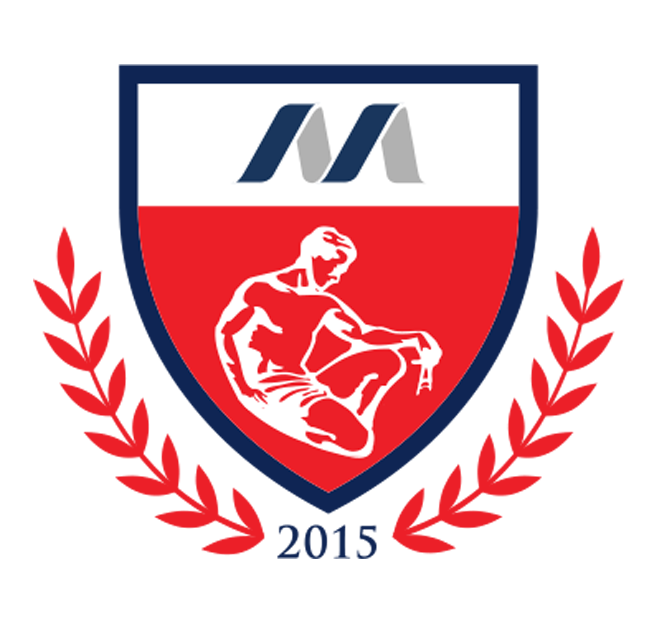Bachelor of Science in Accountancy Program

About BS Accountancy
The program primarily prepares the student to be a certified public accountant. Besides that, they will also be given sufficient training to be prepared for other certifications and charters such as CMA, CIMA, CFA and the like.
The students will be exposed to a variety of industries and sectors in order to create a holistic educational environment. They will be exposed by our faculty to the varying financial behaviors of different business sectors in order to prepare them for actual accounting work.
The graduates of this program are expected to be accountants and controllers of various companies. They may also engage in private practice or manage their own accounting services firm.
Bachelor of Science in Accountancy
- The program primarily prepares the student to be a certified public accountant. Besides that, they will also be given sufficient training to be prepared for other certifications and charters such as CMA, CIMA, CFA and the like.
- The students will be exposed to a variety of industries and sectors in order to create a holistic educational environment. They will be exposed by our faculty to the varying financial behaviors of different business sectors in order to prepare them for actual accounting work.
- The graduates of this program are expected to be accountants and controllers of various companies. They may also engage in private practice or manage their own accounting services firm.
Program Table Summary
- 2019-2020
- B.S. Accountancy
- Total Number of Units and breakdown
| Course Classification | Total Number of Units |
|---|---|
| General Education | 36 |
| NSTP | 6 |
| Physical Education | 8 |
| Common Business and Management Education Courses | 6 |
| Accounting Core Courses | 81 |
| Professional Courses | 24 |
| Professional Elective | 12 |
| MapúaMCM Required Courses | 36 |
| Total | 209 |
- Expected number of years to complete the program – 4 years
- Graduates of Non-ABM (e.g. STEM, HUMSS, GAS) will be required to take a 15 unit bridging program
Program Education Objectives
- Produce competent and ethical professional accountants capable of making a positive contribution over their lifetimes to the profession and society in which they work
- Provide a foundation of professional knowledge, professional skills and professional values, ethics and attitudes that enable graduates to continue to learn and adapt to change over their professional lives
- Able to support various stakeholders (e.g. regulatory bodies, potential investors, creditors, management, employees, etc.) in taking strategic and operating decisions through the presentation and analysis of financial data and information arising from business transactions
Student Outcomes
A graduate of BS Accountancy should be able to:
- Resolve business issues and problems with a global and strategic perspective, using their knowledge and technical proficiency in the areas of financial accounting and reporting, cost accounting and management, accounting and control, taxation, and accounting information systems
- Conduct accountancy research through independent studies of relevant literature and appropriate use of accounting theory and methodologies
- Employ technology as a business tool in capturing financial and non-financial information, generating reports and making decisions
- Apply knowledge and skills to successfully respond to various types of assessments (including professional licensure and certifications)
- Confidently maintain a commitment to good corporate citizenship, social responsibility and ethical practice in performing functions as an accountant
List of Courses
| ACCOUNTANCY CORE COURSES – Provides the students with the core technical foundation essential to a successful career as a professional accountant. Gives the students theoretical and technical accounting knowledge and skills, including an understanding of professional values and ethics. | ||
|---|---|---|
| LAW101 | LAW ON OBLIGATIONS AND CONTRACTS | |
| LAW102-9 | BUSINESS LAW AND REGULATIONS | |
| LAW103 | REGULATORY FRAMEWORK AND LEGAL ISSUES IN BUSINESS | |
| MGT120 | MANAGEMENT SCIENCE | |
| ECO102 | INTERNATIONAL BUSINESS AND TRADE | |
| ACT210 | ACCOUNTING RESEARCH METHODS | |
| ACT200 | ACCOUNTING INTERNSHIP | |
| ACT211 | ACCOUNTANCY RESEARCH | |
| MATH112 | STATISTICAL ANALYSIS WITH SOFTWARE APPLICATION | |
| ACT105 | GOVERNANCE, BUSINESS ETHICS, RISK MANAGEMENT AND INTERNAL CONTROL | |
| ECO103 | MANAGERIAL ECONOMICS | |
| ECO107 | ECONOMIC DEVELOPMENT | |
| ACT103 | FINANCIAL ACCOUNTING AND REPORTING | |
| ACT104 | CONCEPTUAL FRAMEWORK AND ACCOUNTING STANDARDS | |
| ACT110 | INTERMEDIATE ACCOUNTING 1 | |
| ACT111 | INTERMEDIATE ACCOUNTING 2 | |
| ACT112 | INTERMEDIATE ACCOUNTING 3 | |
| FIN103 | FINANCIAL MARKETS | |
| FIN102 | FINANCIAL MANAGEMENT | |
| ACT130 | ACCOUNTING INFORMATION SYSTEM | |
| IT121-9 | IT APPLICATION TOOLS IN BUSINESS | |
| ACT121 | COST ACCOUNTING AND CONTROL | |
| ACT122 | STRATEGIC COST MANAGEMENT | |
| ACT180 | STRATEGIC BUSINESS ANALYSIS | |
| TAX101 | INCOME TAXATION | |
| TAX102 | BUSINESS AND TRANSFER TAXES | |
| PROFESSIONAL COURSES – These courses complement the technical competencies of business and management education, accounting education courses and the intellectual, interpersonal, communication, organizational and management skills in general education. | ||
| ACT150 | AUDITING AND ASSURANCE PRINCIPLES | |
| ACT151 | AUDITING AND ASSURANCE: CONCEPTS AND APPLICATIONS 1 | |
| ACT152 | AUDITING AND ASSURANCE: CONCEPTS AND APPLICATIONS 2 | |
| ACT153 | AUDITING AND ASSURANCE: SPECIALIZED INDUSTRIES | |
| ACT154 | AUDITING IN A CIS ENVIRONMENT | |
| ACT155 | ACCOUNTING FOR SPECIAL TRANSACTIONS | |
| ACT156 | ACCOUNTING FOR BUSINESS COMBINATIONS | |
| ACT157 | ACCOUNTING FOR GOVERNMENT AND NON-PROFIT ORGANIZATIONS | |
| PROFESSIONAL ELECTIVES – These are the courses that a student may select from. These may lead to a certain focus in the Accounting profession. | ||
| ACT103-B | UPDATES IN FINANCIAL REPORTING STANDARDS | |
| MGT106 | HUMAN BEHAVIOR IN ORGANIZATIONS | |
| ACT158 | OPERATIONS AUDITING | |
| ACT107 | VALUATION CONCEPTS AND METHODS | |
| ACT190 | PRINCIPLES AND METHODS IN TEACHING ACCOUNTING | |

